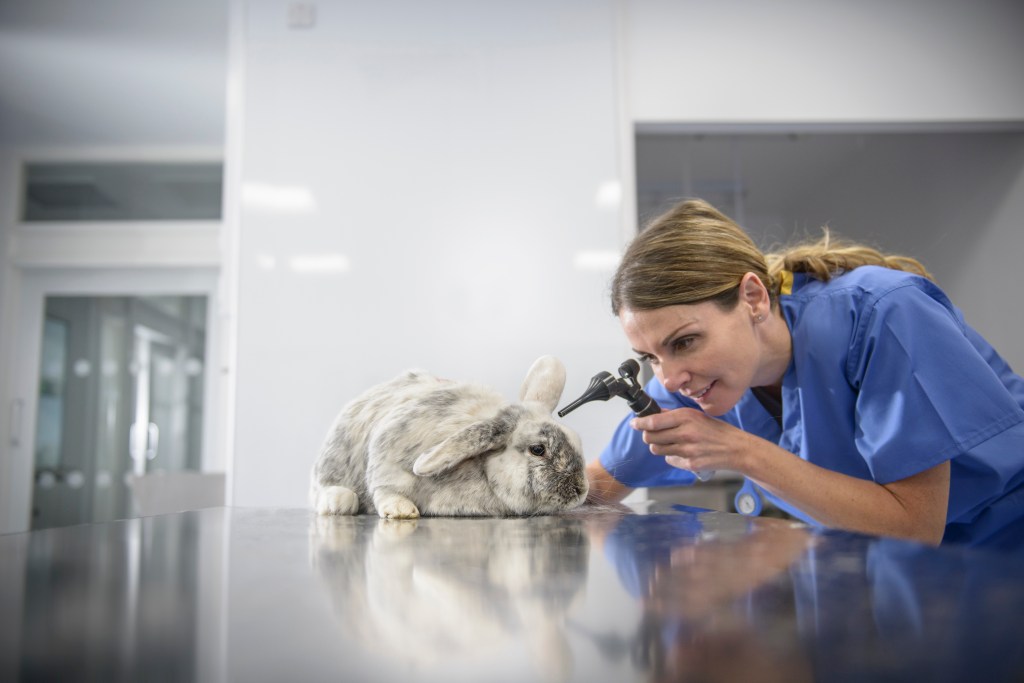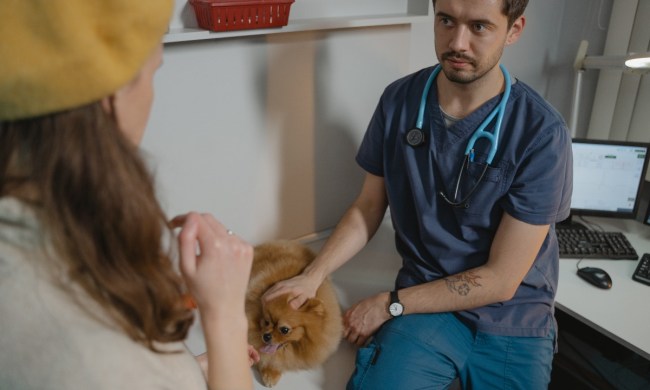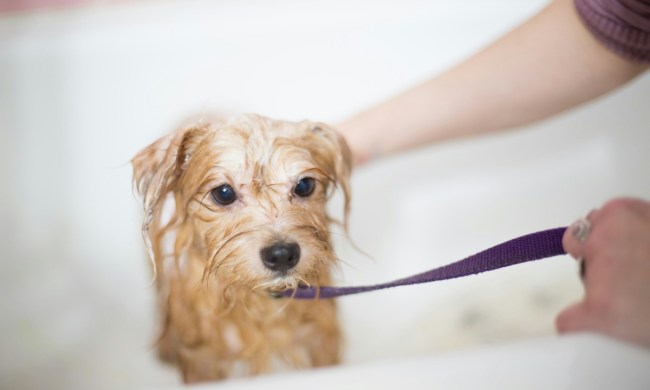You know that you need to go in for a checkup at your doctor’s every so often — your pets do, too. Don’t wait until your animal shows signs of illness to introduce her to her doctor. By attending regular wellness visits, you will go a long way toward preventing more serious issues. A dog or cat requires a trip to the animal doctor every so often, but do rabbits need to go to the vet? Of course, they do! For all the same reasons you and Fido do, plus a few others.

When should I take my rabbit to the vet?
Right away, for starters. Anytime you bring home a pet, you’ll want to get her checked out to make sure everything’s all right. If you have other beasts in the house, this can be especially necessary, as you don’t want your newest addition to bring in any sicknesses or parasites. After the initial vet visit, you (hopefully) won’t need to return for a year, and then just for a regular examination.
How often do they need to go?
An extra-old or extra-young rabbit might need to see the doctor twice per year, but generally, you can stick with an annual appointment. Additionally, you’ll need to drop by for an emergency if your bunny shows signs of illness. These can be notoriously difficult to spot in the timid creatures who try to hide their sicknesses and, therefore, avoid becoming easy pickings for predators. Of course, you will also want to take her right in if you discover that baby bunnies are on the way to make sure the pregnancy goes smoothly.
Which symptoms should I be looking for?
As mentioned, your animal will try to hide any maladies, and this is what makes rabbit health care so tough. Unlike with us, who benefit from telling everyone around when we don’t feel well, looking frail puts a target on her back. Make sure you know her habits well so you notice when she changes them. Look for a loss of appetite or inconsistencies in her bowel movements as clues that something’s wrong. Do your own mini checkup periodically and pay particular attention to her mouth and eyes. Eyes might be the doorway to the soul, but they’re really indicators of health issues in your pet.

What procedures and vaccines do bunnies need?
Her first evaluation will probably include a vaccine that will get topped up at your yearly trip. Many owners also choose to get their little pets spayed or neutered, especially if they have other rabbit companions around. The vet will probably recommend that you wait until she’s 6 months old — you don’t want to prevent her growth and maturity.
You should keep an eye on her big incisors as they can grow too long. Ensure that her diet includes foods that will help grind them down naturally. However, if her teeth are protruding too far, your animal doctor will need to shorten them. Lastly, at least in a middle-aged animal, you may elect to have blood taken. As mentioned, it’s difficult with rabbits to find out if something more is wrong, and blood work will often reveal undiagnosed problems.
What should I bring to the vet?
Aside from your little burrower, you may need to grab a stool sample, unfortunately. While it is certainly unpleasant to collect, this, along with blood work, will often be the only way to get to any underlying issues. It’s even more important if you have noticed recent changes in diet or temperament. Your goal during the vet visit is to keep your charge calm. Most rabbits hate being picked up, a necessity while being examined. Bring your bunny in a small carrying case and take her favorite snack for any particularly unpleasant moments.
Your new best friend might live to be 10 years old or even a bit more, so you’ll have a decade of vet appointments to bring her to. In addition to good medical care, feeding her the right foods and giving her enough exercise will both go a long way toward helping her reach that milestone. The rabbit doc will surely keep track of her weight, and you should try to maintain both a balanced diet and a daily routine of playtime or activity. By ensuring that she stays in optimum health, you will reduce doctor visits and prolong her life.



